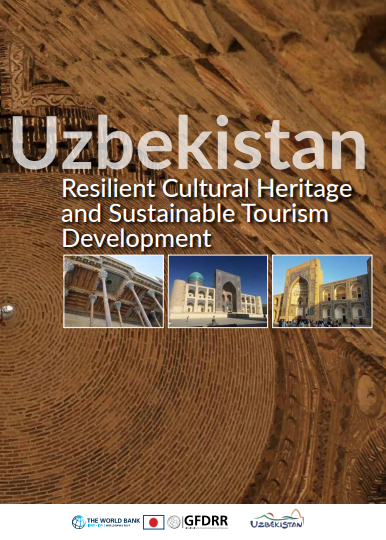In Uzbekistan, authorities instituted strong health and social distancing measures in March to contain local transmission of COVID-19, with national and international flights being cancelled. This has resulted in more than 1,500 tour operators and 1,200 hotels suspending their activities and affected the income of more than 250,000 people, including guides, artisans, and professionals working at architectural monuments, spa facilities, catering facilities, and transport facilities. However, leaders and policy makers must also find opportunities in these moments to make investments and reforms that can drive sustainable development, such as investments in risk identification, risk reduction, and emergency preparedness and response. For cultural heritage, both tangible (e.g., sites and structures) and intangible (e.g, traditions and practices), this experience may provide an opportunity to strengthen protection and resilience.
External



